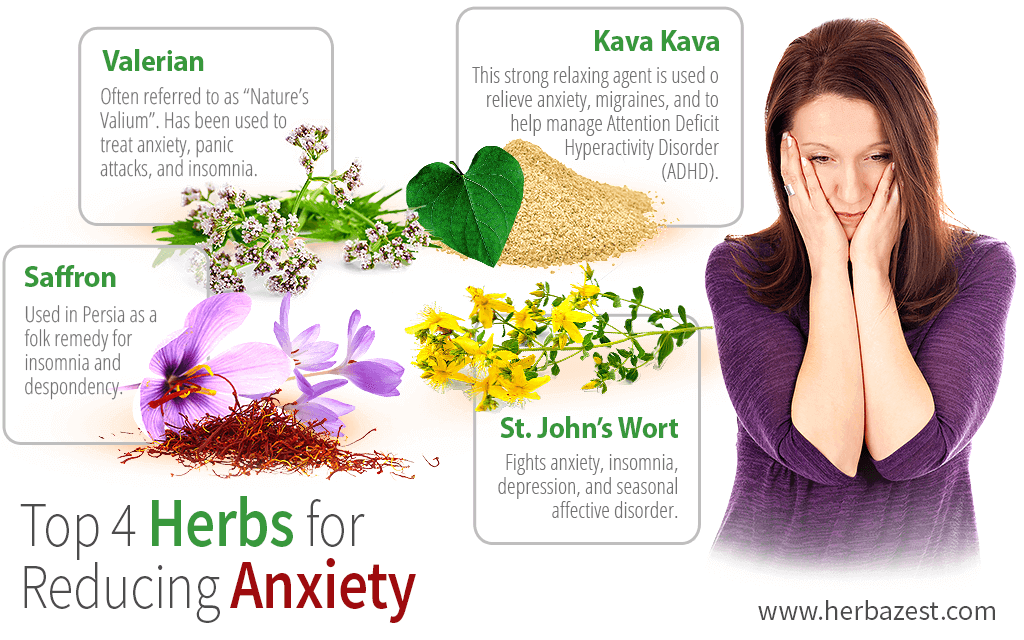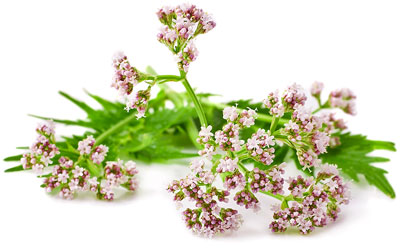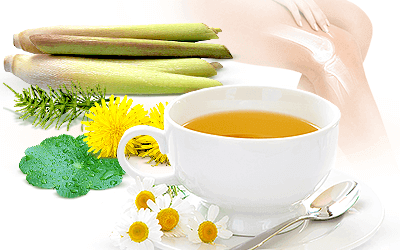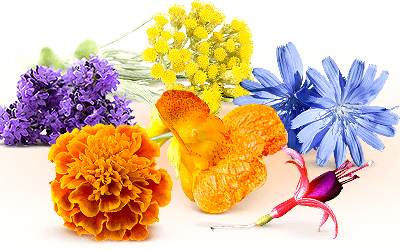Studies have found that a 20-minute meditation session can reduce anxiety by 39%.1 Regular practice can reduce it by far more.
Anxious people have trouble sitting still and relaxing; their mind is constantly circulating worries, fears, and obsessions. If you are anxious all the time, it can really take away from many of life's joys, because you are never in the moment. This can wear down on you over time and lead to severe tension in your body and mind. Therefore, it is important to take a deep breath, relax, and let go of concerns. These herbs are best at assisting with that.
1. Valerian (Valeriana officinalis)
Valerian is widely embraced throughout Europe and Japan for treating anxiety, panic attacks, and insomnia. The herb is so effective at relieving anxiety, muscle spasms, and seizures that it is often referred to as "Nature's Valium." Its sleep-inducing properties are especially helpful in calming anxiety and fighting the associated fatigue.
2. St. John's Wort (Hypericum perforatum)
St. John's wort has been used for ages to fight anxiety, insomnia, depression, and seasonal affective disorder. It helps increase and sustain proper serotonin levels in the brain, which is the neurochemical associated with happiness. St. John's wort also revitalizes and restores energy in the body, helping alleviate feelings of nervous exhaustion and restoring tranquility.
3. Saffron (Crocus sativus)
Saffron is usually more associated with gourmet cuisine and Middle Eastern delicacies than with herbal medicine, but the lack of popularity does not entail lack of effectiveness. Saffron contains a diverse range of carotenoids, most notably crocin, that have been used in Persia as a folk remedy for insomnia and despondency. Soaking a few leaves and stems in warm (but not boiling) water will release the aroma and medicinal properties hidden in saffron that can be enjoyed an hour before bedtime.
4. Kava Kava (Piper methysticum)
Native to the South Pacific, kava kava, or kava, will chill you out in no time. The root is traditionally brewed into a tea to induce strong feelings of serenity, helping treat everything from anxiety and migraines to attention deficit hyperactivity disorder (ADHD). It is key, however, to consume in moderation as excessive amounts of kava can lead to liver damage.2 Also, kava may be restricted in some areas, so check your local laws.
Whether consumed as a supplement or peacefully sipped as a tea, these herbs will reduce anxiety. You do not have to spend your whole life trapped in the worries of your mind. Instead, take a moment to deeply breathe, rely on plants, and feel better already!
Sources
- BMJ Global Health, St. John's wort for depression-an overview and meta-analysis of randomised clinical trials, 1996
- National Institutes of Health, Kava, 2014
- American Cancer Society, Valerian, 2008
- Phytotherapy Research, Anxiolytic and hypnotic effect of Crocus sativus aqueous extract and its constituents, crocin and safranal, in mice, 2009
Footnotes:
- Social Cognitive and Affective Neuroscience. (2013). Neural correlates of mindfulness meditation-related anxiety relief. Retrieved January 22, 2021 from https://academic.oup.com/scan/article/9/6/751/1664700
- The National Capital Poison Center. (n.d.). Kava kava. Retrieved January 22, 2021 from https://www.poison.org/articles/2016-jun/kava







